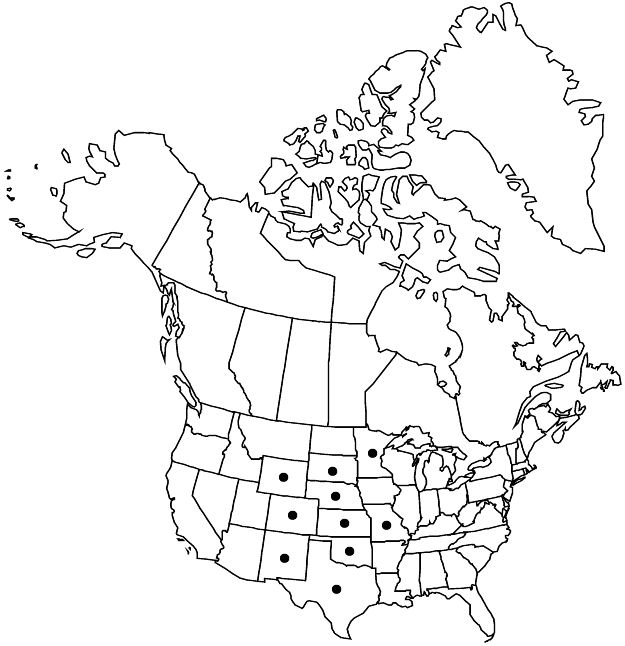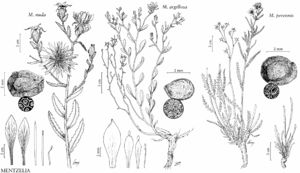Mentzelia nuda
Fl. N. Amer. 1: 535. 1840.
Plants winter annual, biennial, or perennial, candelabra-form, perennials with ground-level caudices. Stems solitary (or multiple as wound response), erect, straight; branches distal, distal longest, antrorse, straight; hairy. Leaves: blade 37–120 × 5–24.4 mm, widest intersinus distance 4.8–19.6 mm; proximal oblanceolate to elliptic, margins serrate, teeth 14–30, slightly antrorse, 0.6–4.9 mm; distal elliptic to lanceolate, base not clasping, margins serrate, teeth 12–30, slightly antrorse, 0.7–4.7 mm; abaxial surface with simple grappling-hook, complex grappling-hook, and needlelike trichomes, adaxial surface with simple grappling-hook and needlelike trichomes. Bracts: margins pinnate. Flowers: petals white, 22.6–49 × 3.6–10.3 mm, apex acute, glabrous abaxially, stamens white, 5 outermost petaloid, filaments narrowly spatulate, slightly clawed, 20–47 × 3–10.2 mm, without anthers, second whorl without anthers; anthers straight after dehiscence, epidermis smooth; styles 11.5–18.5 mm. Capsules cylindric, 14.5–29 × 6.9–12.3 mm, base tapering or rounded, not longitudinally ridged. Seeds: coat anticlinal cell walls wavy, papillae 4–8 per cell. 2n = 20.
Phenology: Flowering Jun–Nov.
Habitat: Disturbed roadsides, hillsides, stream banks, sandy and rocky soils.
Elevation: 100–2300 m.
Distribution

Colo., Kans., Minn., Mo., Nebr., N.Mex., Okla., S.Dak., Tex., Wyo.
Discussion
Mentzelia nuda is morphologically similar to, and phylogenetically near, M. strictissima (J. J. Schenk 2009), but it can be distinguished from the latter by its much larger flowers and capsules. The two species have adjacent ranges in New Mexico and Texas but do not overlap despite apparently similar habitat requirements. Mentzelia strictissima occurs west and south of M. nuda and abuts against the southernmost portion of the Rocky Mountains. In the northern portion of its range, M. nuda too approaches the foothills of the southern Rocky Mountains and extends eastward into the plains. Mentzelia nuda was collected once in northeastern Illinois in 1901 but apparently did not become established there. Reports of M. nuda from Arizona are based on misidentified material of M. laevicaulis and M. rusbyi.
Selected References
None.
